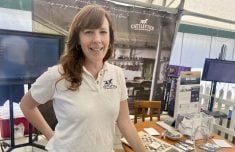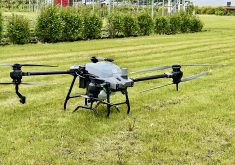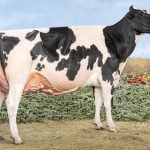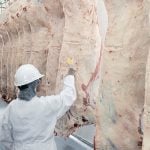Rostselmash must be the world’s most successful combine maker that nobody’s ever heard of.
Today, the company boasts a 60 per cent share in combine market in Russia, the Ukraine and Kazakhstan — but it has almost no market presence in North America, despite owning 17 per cent of global combine manufacturing capacity.
That’s about to change.
Rostselmash has been building combines since 1929 in Rostov-on-Don in the south of Russia. In 2000, it was purchased by three young and aggressive owners during the wave of privatization that followed the fall of the Soviet Union.
Read Also

Producers aren’t panicking over tariffs and trade threats
The Manitoba Canola Growers Association (MCGA) surveyed its members this spring to get a sense of how trade uncertainty was…
The purchase was well-timed as pent up demand for machinery in the former Soviet Union took off at about the same time.
If you think Rostselmash simply inherited its home market, however, it’s time to think again. Yes, it may have roots in the heartland of communism, but Rostselmash could teach many North American manufacturers more than a thing or two about capitalism, and about disciplined marketing too.
First and foremost, this is a company that believes in working smart.
Since privatization, Rostselmash has cemented its reputation as a supplier of robust and affordable machinery and the company became one of the first former
state manufacturers to raise its game to compete with imports from the West.
Rostselmash also built its brand on service guarantees, enhanced by mobile service units in its main trading areas that quickly appear in the field to make repairs during the vital harvest season.
Then in 2007 the company was looking to build on this success, says Dmitry Lubimov, 34, the company’s top executive for its North American operations.
“We thought that a four-wheel-drive tractor would be a very good feature to add to our product line,” Lyubimov says. “The second decision was easy — there aren’t too many companies that can build these tractors.”
Rostselmash’s search quickly brought it to the Fort Garry industrial park in the south end of Winnipeg and to the home of Versatile, the world’s first company to begin mass production of four-wheel-drive tractors, starting in the mid-1960s.
What Rostselmash found was a company with a proud tradition for innovative design that had fallen on hard times.
Company founder Peter Pakosh had conceived the company in the basement of his Toronto home when the transplanted Saskatchewan farmboy and frustrated machinery designer was working for Massey Harris as a tool-maker. In his spare time he designed the first workable grain auger in 1946, only to be rebuffed by his employer when he approached them about building it.
Meanwhile, in Canada…
Picking himself up and brushing himself off, he and brother-in-law Roy Robinson decided to go out on their own. Like most small businesses, they encountered more than a few setbacks but the after a few years of hard slogging, the company was the proverbial overnight success.
Eventually Pakosh and Robinson broadened their product line to include sprayers, harrow bars and other short-line equipment. Faced with rising freight















